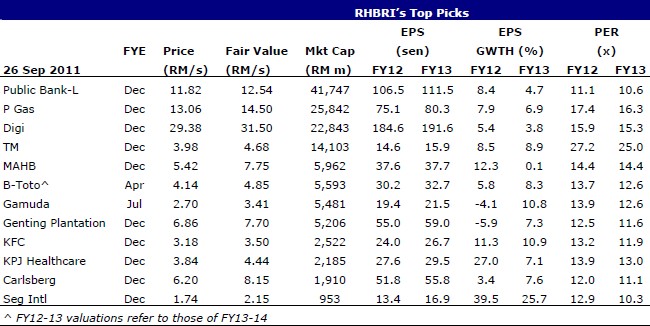
BREAKING NEWS!!
OK, the news of today is of course the eurozone deal struck tonight by the EU leaders. A very good initiative in the right direction I think, but I am afraid it is too little and too late. I will be back on this later.
BREAKING NEWS!!
I am now back from Hangzhou and Zhejiang University and instead of dwelling on the euro area I want to write a little on my feelings about China before i forget all about it.... I have stressed the bubble tendencies in China in earlier blogs, see for instance "Go east, boys and girls!", and it is possible that we might see the start of the great deflation of this bubble now. Chinese stock prices have moved sideways for some time now, default rates in entrepreneurial hotspots such as Wenzhou are picking up and house price increases in places such as Hangzhou are starting to slow down (they say, how would I know….). Square meter prices in Hangzhou are the highest in China and average around USD4000. In prime locations, such as the gritty, run-down, noisy communist-like neighbourhood close to West-lake where I lived prices are said to be closer to USD6000/sqm. OK, Hangzhou has 6-8 million people but most of them earn very little (a busdriver earns around USD500/month, allegedly), engineering graduates perhaps USD1000/month and university professors at Zhejiang Uni., China’s third best university, seem to earn much less than those in Europe.
I do not know enough about China to give true investment advice but the similarities with Japan in the late 80s are obvious (enormous amount of currency in circulation, enormous amount of debt, a belief/dependency in/on the rest of the world buying your shit, a current world economy in agony, an enormous belief (shared by the outside world) in your competence, a culture orthogonal to everyone elses, a lot of paper-millionaires, ridiculous high-end real-estate prices, random distribution of luck/wealth, newly-rich setting the standard, copying rather than inventing,….). The counter-argument would be, “but they are so productive, flexible and efficient!”. Yes, but so were (and are) the Japanese and look at their stock market the last 20 years...
For a flavor of the great Chinese transformation from a closed communist economy to the paradise of capitalism it is today, the car in the picture, admittedly a marvelous piece of car-history, Rolls-Royce Phantom, costs more than USD 1.2 million (RMB 8 million) in China according to the Lamborghini saleswoman I talked to (a Lambo Gallardo costs a mere USD600000). During my time in Hangzhou I have seen three RR Phantom, two Gallardo, four or five Quattroporte, three Ferraris, plenty of Bentleys, Hummers and 911s and, literary, thousands of new MB S-klasse. Deng Xiaoping would be proud of his accomplishments if he had lived today!


































